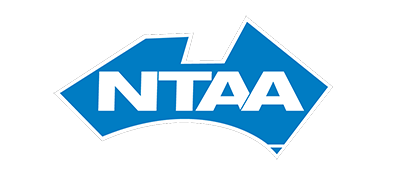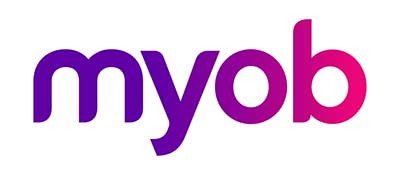According to 2019 tax statistics, almost 10% of individuals claim a tax deduction for personal super contributions. The data shows that super deductions for those aged under 40 are significantly lower than those approaching retirement. In my opinion this is a great shame, since super contributions earlier in life can have an enormously positive impact on your super balance when you retire. This article, however, is really for those who already make personal super contributions into their super (or are thinking about doing so). I’m hoping to broaden your understanding of super contributions and equip you to make the right decision when it comes to tax time.
Super basics
Most people would be familiar with the idea that employers are required to make super contributions of a certain percentage on top of their employees’ wages into their super funds. Broadly speaking, this obligation is currently 10% of the employees’ gross wages. This super rate will gradually increase to 12% over the coming years, assuming federal governments don’t tinker with existing legislation (I’m dreaming, I know!). E.g. if an employee receives a salary of $100K, the employer is required to contribute an additional $10K into their super fund.
The different types of super contributions
I think most people have a pretty good idea of the basics of how super contributions work. Here’s where it gets a bit more complicated – there are two broad categories of super contributions:
- Concessional – these are contributions for which someone has claimed a tax deduction. It can be the person making the super contribution, but more often than not it’s the employer of the relevant employee. I.e. the employer is the one who claims the tax deduction when they contribute to their employees’ super funds.
- Non-concessional – these are contributions for which no one has claimed a tax deduction. These most commonly come from people making deposits of their own after-tax money into their super funds.
Super contributions and tax
Unfortunately, a lot of people take very little interest in their super funds until they start about thinking about retirement. This is usually at the point where it’s too late to have a meaningful impact on their super balances without great effort. A lot of people don’t pay attention to what happens to the money that goes into their super fund (amongst other things).
Tax is imposed on some super contributions, depending on what sort of contribution it is. Concessional super contributions are taxed at 15% on the way into the super fund. So, if your employer contributes $10,000 in your super fund in a year, $1,500 of this will go straight to the government as payment of your super contributions tax. This only leaves $8,500 to be invested within your super fund, which will hopefully generate a decent return. In contrast, non-concessional super contributions go into your super fund tax-free.
So, what are personal super contributions?
Personal super contributions just refer to super contributions which come from the person who owns the super account, as opposed to amounts which come from other sources (like their employer). Personal super contributions can be either concessional or non-concessional.
Personal super contributions and your tax return
If you make personal super contributions into your super fund in any financial year, the super fund will often send you a letter asking the dollar value of the super contributions you’d like to claim as a tax deduction. Alternatively, you’re also able to submit a form to your super fund to report the relevant details. It’s not until your super fund sends you written confirmation of the dollar value of super contributions you’re claiming that you’re allowed to claim a tax deduction on your corresponding tax return.
What’s the point of the super deduction form?
This is a valid question. On face value, who wouldn’t want to claim a tax deduction for the maximum super contributions they’ve made during the financial year? The super paperwork doesn’t always make clear that if you claim a tax deduction for some or all of your super contributions, then the nominated contributions are treated as concessional contributions inside your super fund. This means that you will incur 15% tax inside super for any contributions you claim a tax deduction for. Any unclaimed personal super contributions will be classified as non-concessional, which means no tax will be deducted from them when they go into your super fund. So, claiming 100% of your super contributions as a tax deduction won’t always result in the best outcome. The super deduction form gives you the ability to choose the best outcome for your personal situation.
Is claiming tax deductions for personal super contributions worthwhile?
The answer to this question will vary from person to person. Here are two good reasons why you wouldn’t claim some (or all) of your super contributions as a tax deduction:
- If your income isn’t high enough to pay any tax – broadly speaking, based on current tax rates, an individual can earn approximately $22K p.a. before they incur any tax at all. This is after factoring in various low-income tax offsets. This means that a tax deduction is completely worthless to you if your income isn’t at least $22K. If you claim a tax deduction for your personal super contributions in this situation, you’ll lose 15% of them when they go into super and gain nothing in return!
- If you’d like to be eligible for the super co-contribution scheme – this scheme is a government initiate that has been around for years which encourages lower income earners to save for their own retirement. Through this scheme, the government will contribute an extra 50% of your non-concessional super contributions into your super fund on top of whatever you contribute each year. This is capped at $500 per person per year (i.e. only applies to the first $1,000 you contribute into your super fund). That’s a 50% return on investment instantly, plus this amount will continue to grow up until the point you retire. It’s worth pointing out that in order to be fully eligible for this scheme, your taxable income needs be less than $39,837. If your income is higher than $54,837, you’re not eligible at all. If you claim a deduction for your personal super contributions, they will automatically be ineligible for this scheme.
And here are two good reasons why you would claim all your super contributions as a tax deduction:
- Your income is over $54,837 – at this point, you can’t possibly be eligible for the super co-contribution scheme, and you will definitely have a tax liability. Take someone who earns $130K and makes a $10K personal super contribution as an example, if they claim the full amount as a tax deduction, this will result in a personal tax saving of effectively $3,900. Sure, this will cost them $1,500 contributions tax inside their super fund – but that’s still a great net tax saving.
- The personal tax saving is more important than the super benefits – sometimes, a dollar today is worth more than two dollars in the future. Someone earning $40K who throws some of their own money into super will still be in a better personal tax position if they claim those super contributions as a tax deduction then if they don’t. Though the super co-contribution scheme offers a great investment return, this return might not be accessible for decades (depending on your age). Some people will consider the immediate personal tax deduction more valuable than the long term gain.
To claim or not to claim?
I’m hoping that from reading this article, you’ve understood that the question of whether or not to claim personal super contributions for tax purposes is not always straight forward. To properly answer this question, you need to consider your current tax position as well as your long-term investment priorities. Once you know these things, you should be able to make the decision that provides the best outcome for you.








